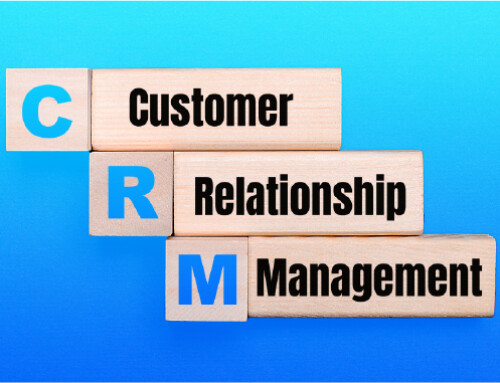Contents
Let me introduce you to Matt. Matt has always dreamt of becoming an entrepreneur. He started a small business at 20 from his parents’ house. Matt wanted to have his own printing company, so he started designing T-shirts. He’s actually a talented designer. Matt found a printing company to print his products and directly ship them to customers. First, he started selling his products to friends from college. One day, he got a massive order from a frat house to simply print their logo on his T-shirts. After delivering the order, his customers started recommending him to other frat and sorority houses. Orders were coming in from here and there. Can you print our logo on mugs? Can you design a T-shirt with our slogan on it? Make it pink! Pink, everything!
Soon enough, he hired 3 of his friends to help him out. He then rented a small 2 bedroom office to work and store his products. As money came in, he thought, why not expand to other colleges and universities? What if providing printing services to educational centers was his long-time printing company goal?
But wait right there. If you were Matt, what would your plans be for expanding your small business?
Expanding your small business is exciting and all. But, there are sure, not to say rules, but paths you need to follow. If you overestimate your abilities or do not have a solid plan, you might lose it all.
A simple Google search will show you many tips on growing and expanding your small business. But, what I want to tell you is everything you need to do and everything you have to avoid in order to have a successful business growth.
How Can You Expand Your Small Business
Business expansion and growth can be done in different ways:
- New products/services
- New locations
- New sales channels
- New target audiences
- Advertising
- Person-to-person networking
- New marketing opportunities
Small steps toward expanding your small business will give you enough information about how your products or services can adapt to new strategies. In Matt’s case, he can approach other universities and rent booths at their events to showcase his service. It will cost him money, but it won’t cost him as much as suddenly renting a store and hiring sales reps. This way, Matt will find out if there is demand for his service in other universities. Matt’s business growth strategy is new locations. With this small step, he will find out if the strategy he chose will help him grow. If not, he can move on to another plan without going bankrupt.
The critical point is knowing why you are expanding your small business and when is the right time to do it.
Expanding Your Small Business — Why and When?
There are different reasons why a small-business owner would want to expand their business. In fact, all successful businesses start small and grow strategically over time. Some signs tell you you need to expand your business. If you expand too soon, you may not be able to afford expansion costs. If you wait too long, you may lose the opportunities your competitors don’t hesitate to take.
5 Reasons to Expand Your Small Business
If any of the reasons below apply to you, you can consider expanding your business:
-
Respond to market demand
The product you are offering has high market demand. How do you know that? You conducted a highly in-depth market analysis and found that the demand for your current product is increasing. You also need to research how your competitors are responding to high market demand. If market demand is still higher than production, then you can decide to expand your business to offer more products. If you manage to cover the market demand, then you can even become the market leader. This will increase revenue and business awareness if you are offering a high-quality product at a reasonable price. Expanding your small business based on market demand means hiring more staff and branching out or delivering to more locations.
-
New markets
Let’s say you offer a product to a specific target audience. If this market is oversaturated, it might be hard for you to convince people to change from the business they already work with and buy your products or services. If your small business is struggling with this problem, then it’s time for you to find a new market. Expanding your small business to new markets means offering your products in locations where there is a new or unsaturated market for what you are offering. Sometimes targeting a new market means updating your products to meet new market needs or even offering a whole new product, in your business line, of course.
-
Increase stability
Business growth does not only mean selling more. Your business becomes more stable as it grows. But why is stability a reason to expand a business?
Let’s say you are a customer and want to buy a specific product. You have two options. There’s business A with 3 franchises in 3 locations and around 50 employees. There’s also business B, an online store with no physical location that has 5 employees and is relatively newer than business A. There are 3 reasons why you would probably not buy from business B:
- They may not be a serious business that offers high-quality products
- They may not be around if you need customer service
- There is no guarantee if they truly are a business or are fraud
It’s hard to trust small businesses if there are more reliable competitors in the market. That’s why you might seek out stability. If you need to assure your customers that you are here to stay and you will be there for them if they need your help with the products or services they buy from you, then consider expansion.
-
Increase profits
If you need to scale up your profits, then it’s time to expand your business. Expanding your business can result in increased profit in two ways.
When you are a larger company, you can get better discounts and prices from suppliers. How? As your business grows, you will sell more products. Hence, you will need more product supplies. Bulk orders cost less than individual orders. The higher your bulk order from your suppliers, the more discount you can get. Lower supply prices mean higher profit on the products you sell.
The other reason, which is pretty obvious, is that you have the resources to sell more products when you are a larger business. Selling more products also means increasing your profit.
-
Staff
Finding the right people to hire is always a struggle for any business. The thing is, when your business grows, you get to target more professional people as the opportunities to work with you would be more attractive to them. If you expand your business, you can offer more benefits and higher job stability to professional employees. So, if the people you want to hire do not want to work with you, expand your business to increase your business opportunities and attract the right people.
5 Reasons Not to Expand Your Small Business
If any of the reasons below apply to you, it’s not time to expand your business:
-
Increased risks
With business growth comes risks. There are several factors that can cause damage while you are expanding your business. One risk is not having sufficient funds. If you are hiring more people and buying more resources, you need to have the assurance that you can sell enough products or services to cover these expenses. If you are not generating new sales channels and are still relying on your existing sales channel, or even do not have the budget to advertise and increase sales, don’t plan on expanding. The first thing you need to do here is to strategize a cash flow that would cover your expansion costs.
Another risk is not being ready for new locations or markets. As I mentioned before, expanding to new markets is a great way to increase sales and growth. But, you have to prepare your business and products or services first. Chances are, your products may not be suitable for new markets. If research shows that you need to update your offers to new market needs, and you don’t have the resources to do so, do not plan on expansion.
-
Increased workload and stress
Expanding a business needs serious hard work and commitment. When you expand your business, you will increase the pressure on yourself and your team. Business growth requires longer work hours, more significant responsibilities, complicated structures, more advanced training, and supervision of your staff and operations. The stress of doing something you haven’t done before, like branching out to new locations, can also cause emotional decisions that can have strategic and financial consequences.
If you feel like you and your team are not ready to tackle new adventures or fully commit to your business, meaning cutting time on personal life, then you are not ready for expanding your small business. You can prevent this by ensuring everyone involved is aware of the increased workload and fully committed to your business growth.
-
Quality decrease
Expanding a business can negatively affect the quality of your business. As you receive more and more orders, your customer service standards, product quality, and response time can drop and decrease. As you expand and receive a higher demand, it will get harder to offer personalized services to each and every one of your customers. Basically, it’s a matter of quantity over quality. If you cannot guarantee that quality will not be sacrificed with growth, it may not be the time for business expansion.
-
Increased costs
Increased revenue is always accompanied by increased expenses. When you expand your business, you will have new costs like renting or buying a location, hiring new employees, updating current products or services, adding new products or services, marketing and advertising, and so on. You need to budget for an initial investment when you decide on expanding your business. As your business grows, it takes time for ROI (return of investment) to be noticeable, and there will be payment gaps. If you cannot develop a solid financial plan to support your business as it grows, consider delaying your business expansion.
-
Direct control loss
As I mentioned before, business growth will increase your workload and can cause extra stress and pressure on you and your team. Pressure can decrease your functionality and cause you to lose control over what’s happening in your business. Also, when you have external investment to cover the expenses of your business expansion, you may lose control over the direction of your business. Franchising itself can cause control loss as you cannot monitor how each manager and branch is doing daily to maintain your brand. If you are not in the position to handle the pressure of business growth or to let go of the control over the areas of your business that are not in your hands anymore, it’s not time for you to expand your business.
At the end of the day, expanding your business is about taking the opportunity to increase revenue while accepting the risks. If you understand your market, business, opportunities, and risks well enough, you can decide if you should expand your business or not or when to do it.
6 Ways to Grow Your Business Effectively
As I mentioned earlier, expanding your small business can be done in many ways. Based on the information I gave you on when and why to expand your business, you can make a decision if you want to expand or not. If you do, there are so many tips on how to expand your business. The strategies below are proven ways to expand your business:
-
Know your customer
The most vital information you need for running a business is who your customers are and what they need. You have already defined your target audience and buyer personas in your business plan when you first started your business. But, to grow your business, you now need to know who your actual customers are. You can collect this information by running surveys, reading customer reviews, or direct communication through customer service.
Your customers might give you pain points you didn’t think of when you developed your buyer persona. This new information can help you enhance your product or service range. You may understand that people in different locations have difficulty accessing your products. That’s an opportunity to expand to those locations.
Overall, the information your customers give you can show you how you should expand your business to please your customers and increase revenue.
-
Focus on customer service
As your business grows, your priorities might change. One aspect of running a business you need to always prioritize is customer service. You cannot let customer service fall back in the process of growing your business. Why does it matter? Your current customers are your main source of revenue. They are also your front-line marketers, your advocates. Ensuring your customers are having a great experience with your business, whether it’s in their buyer journey or customer support after they purchased from you, results in happy customers who leave good reviews. Good reviews mean you have a good reputation for presenting yourself to new markets and potential customers. Also, if your current customers have a good relationship with your business, they will more likely introduce you to friends and family.
As you grow your business, you need your current customers on your side, so make sure you have their back. You can use a tool like RunSensible to manage your customer relationships. With RunSensible, not only is CRM at your service, but you also have a robust customer support system that automates and streamlines your support pipeline. This means that your customers never have to wait days and get passed on from this support agent to that manager to report an issue and follow up on it.
-
Extend value from current customers
Expanding your small business isn’t always about finding new customers. Why not extend value from your current customers? Your current customers are more likely to return for a repeat purchase or a new product. You can add a new product line that compliments your current products or services. You can also increase product prices by adding additional features or add-ons that your customers find valuable. Just because you have maximized your target audience doesn’t mean you cannot sell to them anymore. Plus, any opportunity to pull more value from your current customers can increase the chances of finding new customers.
-
Leverage social media
Starting your activity on social media (and staying consistent on them) can be a new opportunity to expand your business. You can reach a new load of your target audience on social media. Find which platforms your audience is active on and begin working on them. You don’t need to post every day or create over-the-top visuals. You need a marketing strategy to keep the content consistency your audience would expect from you. You can advertise and promote your products on social media and create a whole new sales channel.
-
Grow your team
Any sort of business growth will require expanding your team at some point. Just as you need to focus on providing outstanding customer service, you need to focus on the quality of the people you hire. You would want professional staff but also value diversity. Find people who can bring value to your business and challenge your own perspectives. Trust me, you don’t need an army of “yes sir” employees. You need bright minds who can bring something new to the table and create ideas you wouldn’t think of on your own.
While growing your team, make sure you don’t neglect your current staff. It’s essential to keep track of your current team’s professional development. Show your gratitude towards the work they put in and their commitment to your business. The way you treat your employees will directly reflect on the way you treat your customers.
-
Develop additional income streams
I’ve already told you how vital your financial situation is when deciding on expanding your small business. You cannot struggle with income and look for expansion. If you are having a hard time funding your business growth plan, add some side incomes. Additional income streams can be new supportive product lines, online courses, and webinars, subscriptions to a new service, or even sponsorships and advertising.
-
Use the right tools
I have already discussed how you can leverage scheduling and marketing automation tools to grow your business quickly and without setting aside a considerable budget. Of course, without comprehensive, all-in-one software like RunSensible, you will have to deal with the costs of multiple apps and platforms, adding up to a hefty sum much more quickly than you think.
Keep Looking for Growth Opportunities
Expanding your small business doesn’t have to be scary. If you follow the ways we discussed in this blog post, you can easily develop a business growth strategy. All you need to do is take growth opportunities and not rush into the unknown unprepared. Don’t forget that there are tools that can help you manage all aspects of your business while you tend to your business expansion process. You can use RunSensible to manage your customer relationships, grow your customer base with email marketing, automate the daily tasks that are taking up valuable time, and so much more. RunSensible was created to help you manage your business on a daily basis. Don’t lose the opportunity to grow your business because your hands are tied with tasks that can quickly be done by RunSensible.
FAQ
How can I expand my small business?
Expanding a small business can be done in many ways, from activity on social media to finding new locations or target markets.
Do I need external funding to expand my business?
It depends on your financial plan and the type of business expansion. Basically, if your income does not support our growth costs, you can look for external investment.
How can I calculate my business growth rate?
Use these formulas to calculate the growth rate:
Growth rate = (end value/starting value) – 1 x 100%
Growth rate = (end value-starting value)/starting value x 100
How can RunSensible help me expand my business?
RunSensible offers exceptional features that handle customer relationships, support, payment and invoices, business phone solutions, email marketing, automation, and so much more. These features each take care of different aspects of your business. By leaving daily tasks to RunSensible, you can focus on expanding your business.
Disclaimer: The content provided on this blog is for informational purposes only and does not constitute legal, financial, or professional advice.






